10 of the best mountain cabins
February 02, 2019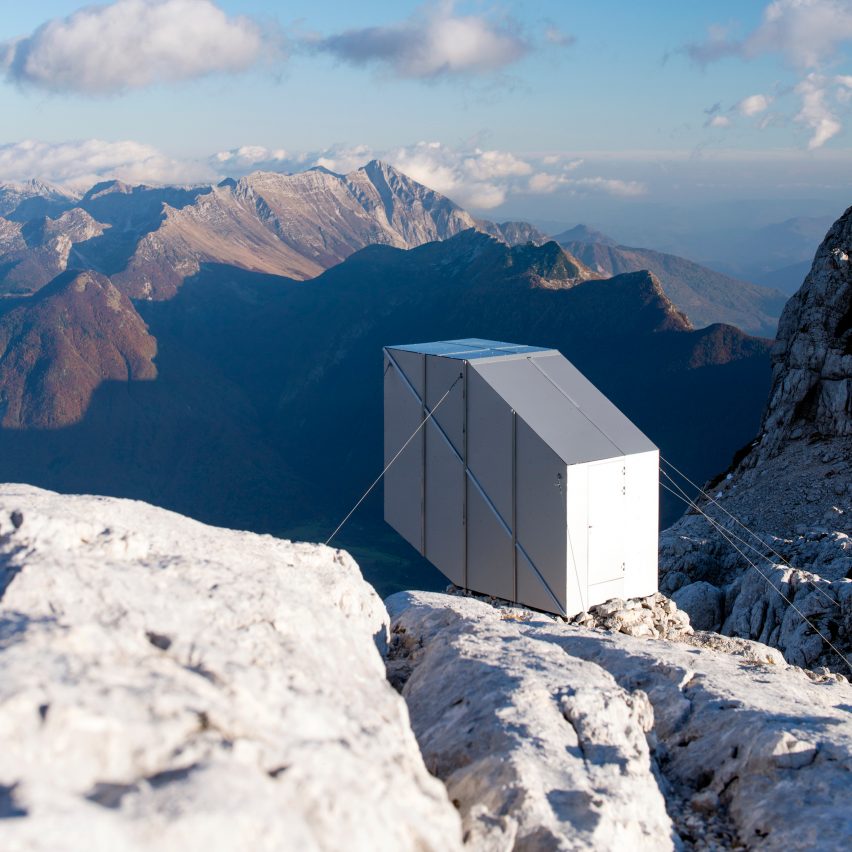
From two precariously placed hiking shelters designed by OFIS, through to a stilted timber-frame hideaway on an old ski slope, we've rounded up 10 of the best mountainside cabins on Dezeen.
Kanin Winter Cabin, Slovenia, by OFIS
This tiny aluminium-clad cabin by Slovenian studio OFIS Arhitekti cantilevers over the edge of Mount Kanin on the Slovenian-Italian border.
It can only be accessed by climbers or by helicopter, and is made from a combination of cross-laminated timber, glass and aluminium panels designed to resist extreme weather conditions.
Find out more about Kanin Winter Cabin ›
Lofthuset, Sweden, by Hanna Michelson
No more than two people can stay in this 10-metre-tall stilted timber cabin, designed by Swedish architect Hanna Michelson as a minimalist "sanctuary".
Positioned on the site of an old ski slope in the Åsberget mountains, it is topped by an open deck under a gabled pinewood roof, providing uninterrupted views over the valley below.
Find out more about Lofthuset ›
Varden, Norway, by Spinn and Format Engineers
Designed to encourage hiking in the town of Hammerfest, this shelter sits on top the Storfjellet mountain in Norway.
It has an "organic" prefabricated framework, developed by Spinn and Format Engineers to echo its rugged arctic setting while withstanding harsh polar winters.
Bivouac Luca Pasqualetti, Italy, by Roberto Dini and Stefano Girodo
This prefabricated structure, named Bivouac Luca Pasqualetti sits at an altitude of 3,290 metres on the edge of a mountain peak in Valpelline, Italy.
Developed for a group of local alpine guides who wanted to encourage exploration of "forgotten routes", has eight beds split over two levels.
Find out more about Bivouac Luca Pasqualetti ›
RF C9, Chile, by Gonzalo Iturriaga
Chilean architect Gonzalo Iturriaga used folded planes of blackened pine to create this faceted cabin on a rocky site in Chile's Valparaíso Region.
It comprises a basic suite of rooms and is designed to offer a simple space where its mountaineer owner can rest.
Culardoch Shieling, UK, by Moxon Architects
The mountains of Scotland's Cairngorms National Park offer a dramatic backdrop for this hut by Moxon Architects, which is crafted from unprocessed larch wood.
Its exterior is modelled on the aesthetic of livestock holdings, and it has a roof covered with heather, moss and stone gathered from local hillsides to help camouflage it.
Find out more about Culardoch Shieling ›
Cabin on a Rock, USA, by I-Kanda
This remote prefabricated cabin in New Hampshire's White Mountains was designed as a weekend residence for a couple and their two young children.
Supported by a mound of bedrock, it comprises a cantilevering timber porch that has a long sliding glass wall to give undisrupted views over the valley.
Find out more about Cabin on a Rock ›
Alpine Shelter Skuta, Slovenia, by OFIS
Perched on a rocky outcrop below Skuta Mountain is a shelter designed by OFIS, which can accommodate up to eight mountaineers.
Informed by traditional Alpine architecture, it has pitched-roof form clad in concrete, while glazed gable ends overlook the Slovenian mountain range.
Find out more about Alpine Shelter Skuta ›
Concrete Cabin, Switerland, by Nickisch Sano Walder Architects
Situated in the Swiss Alps, this stark concrete hideaway is designed by Nickisch Sano Walder Architects as a "refuge, a resting and recreation place".
It has minimal concrete interiors that contrast with its rough scalloped exterior, which was cast from timber acquired from its predecessor – an aged log cabin.
Find out more about Concrete Cabin ›
Tubakuba Mountain Hub, Norway, by Espen Folgerø
This cabin was the result of an experiment by Bergen School of Architecture students in collaboration with Architect Espen Folgerø, which explored wood as a building material.
It sits beside a mountain in Bergen, Norway, and is accessed by a curving wooden tunnel informed by the shape of a brass instrument.
Find out more about Tubakuba Mountain Hub ›
The post 10 of the best mountain cabins appeared first on Dezeen.
from Dezeen http://bit.ly/2TwiQj2
via IFTTT
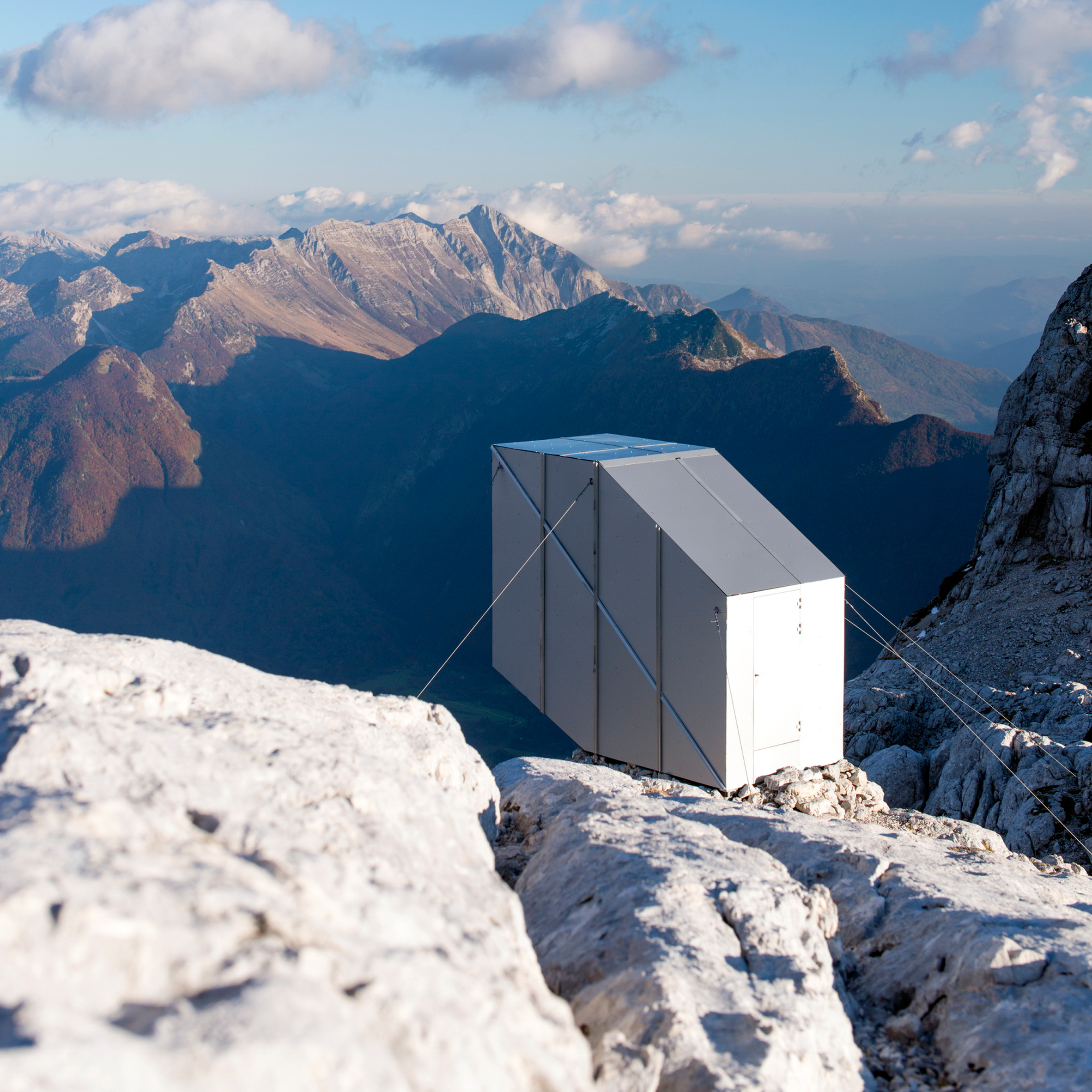
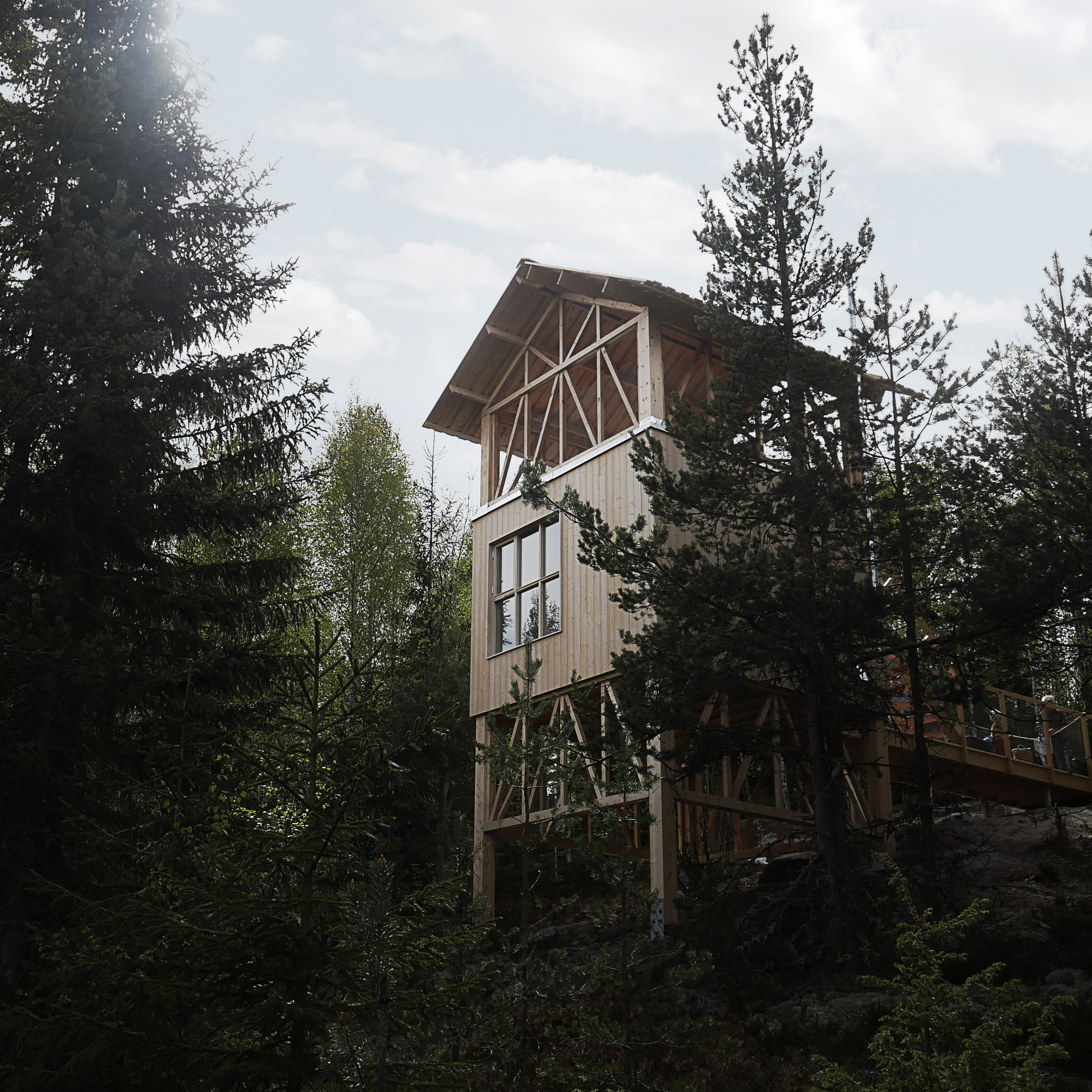
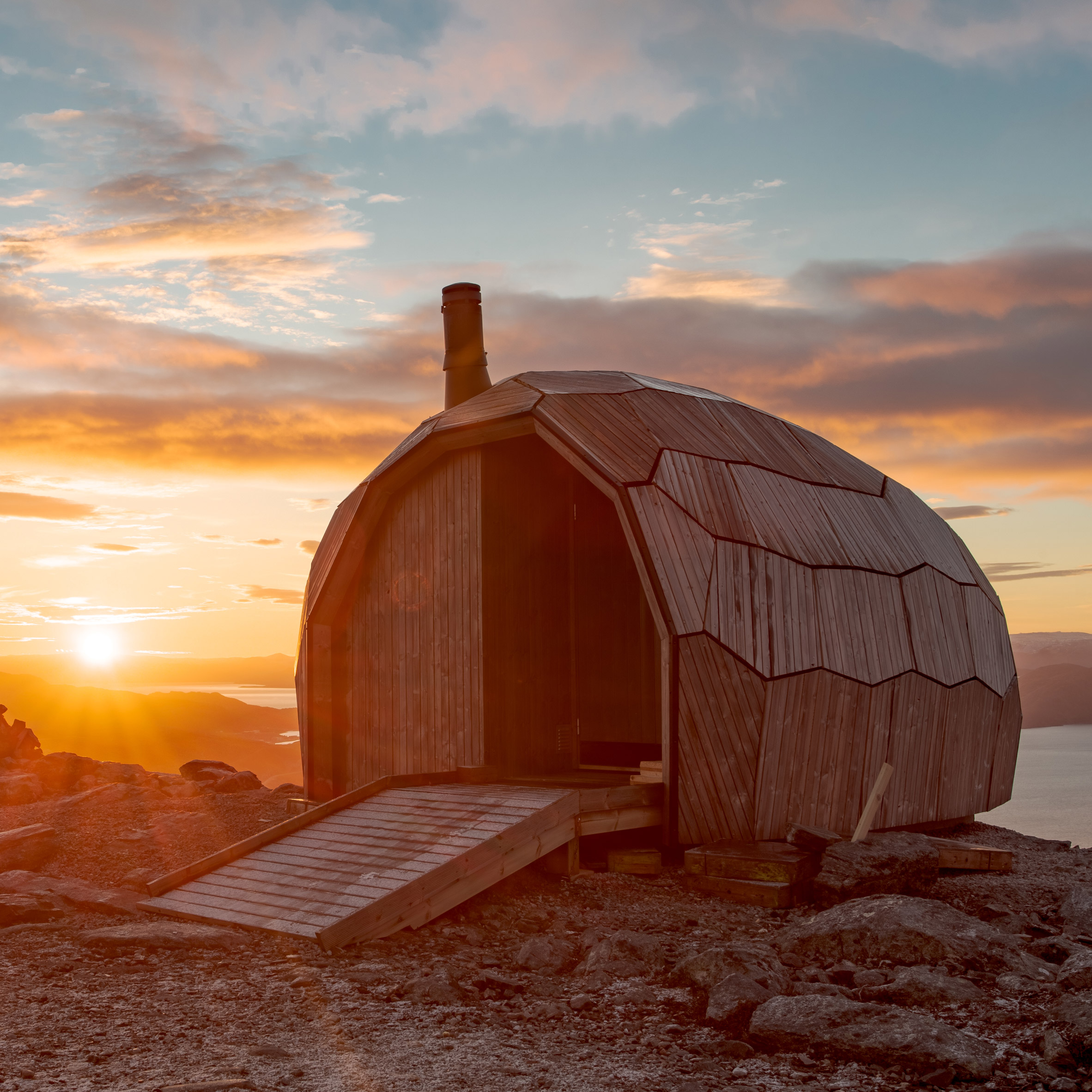
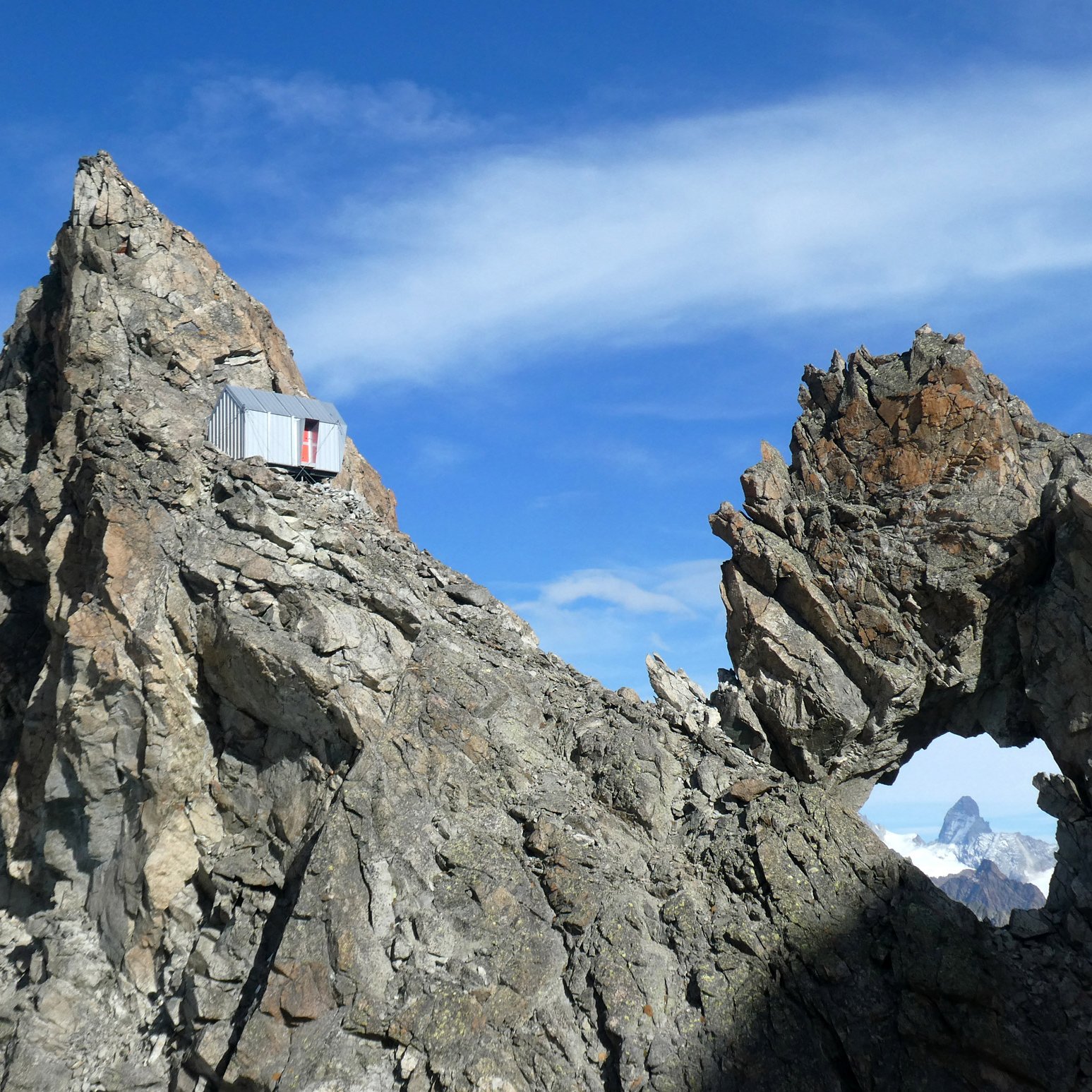
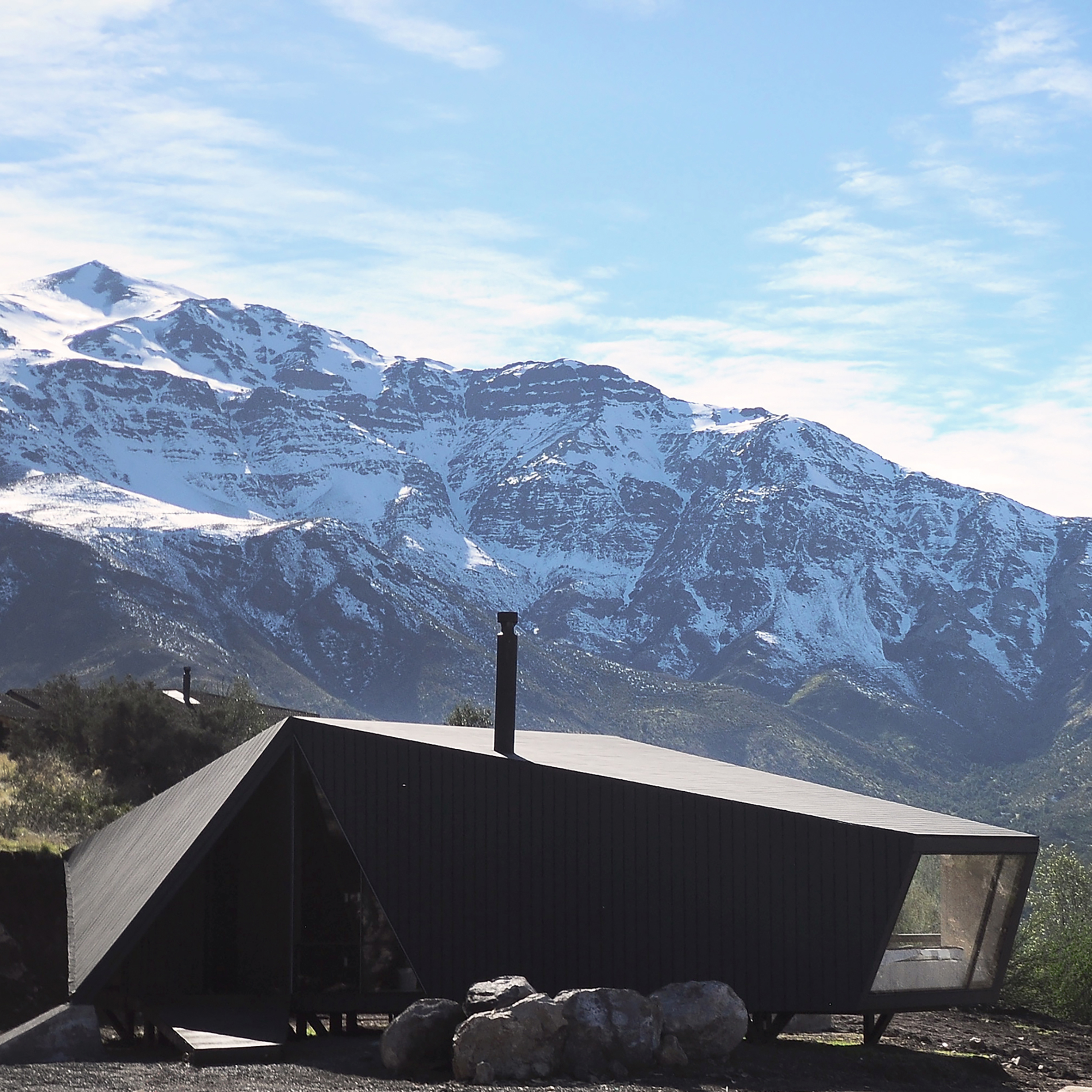
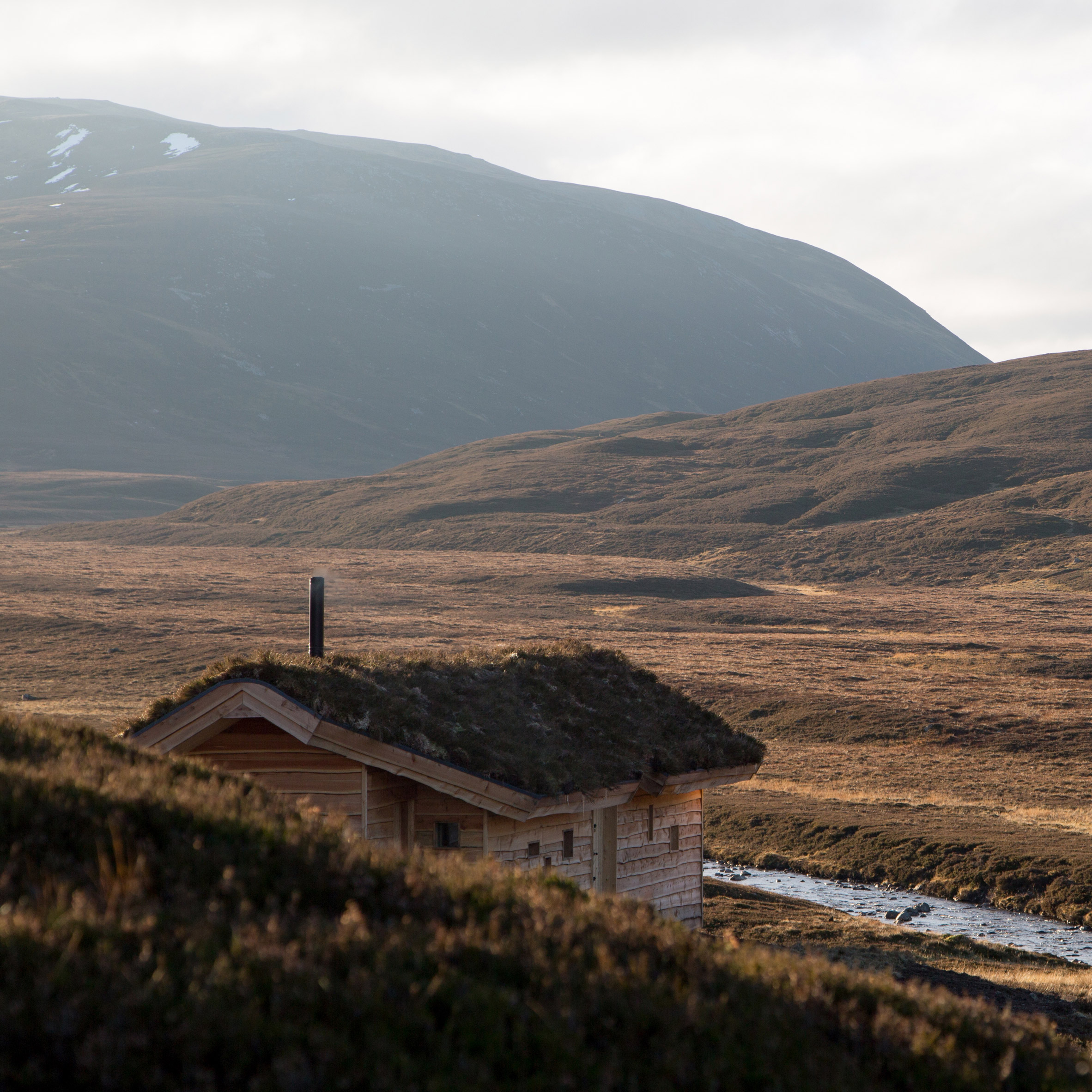
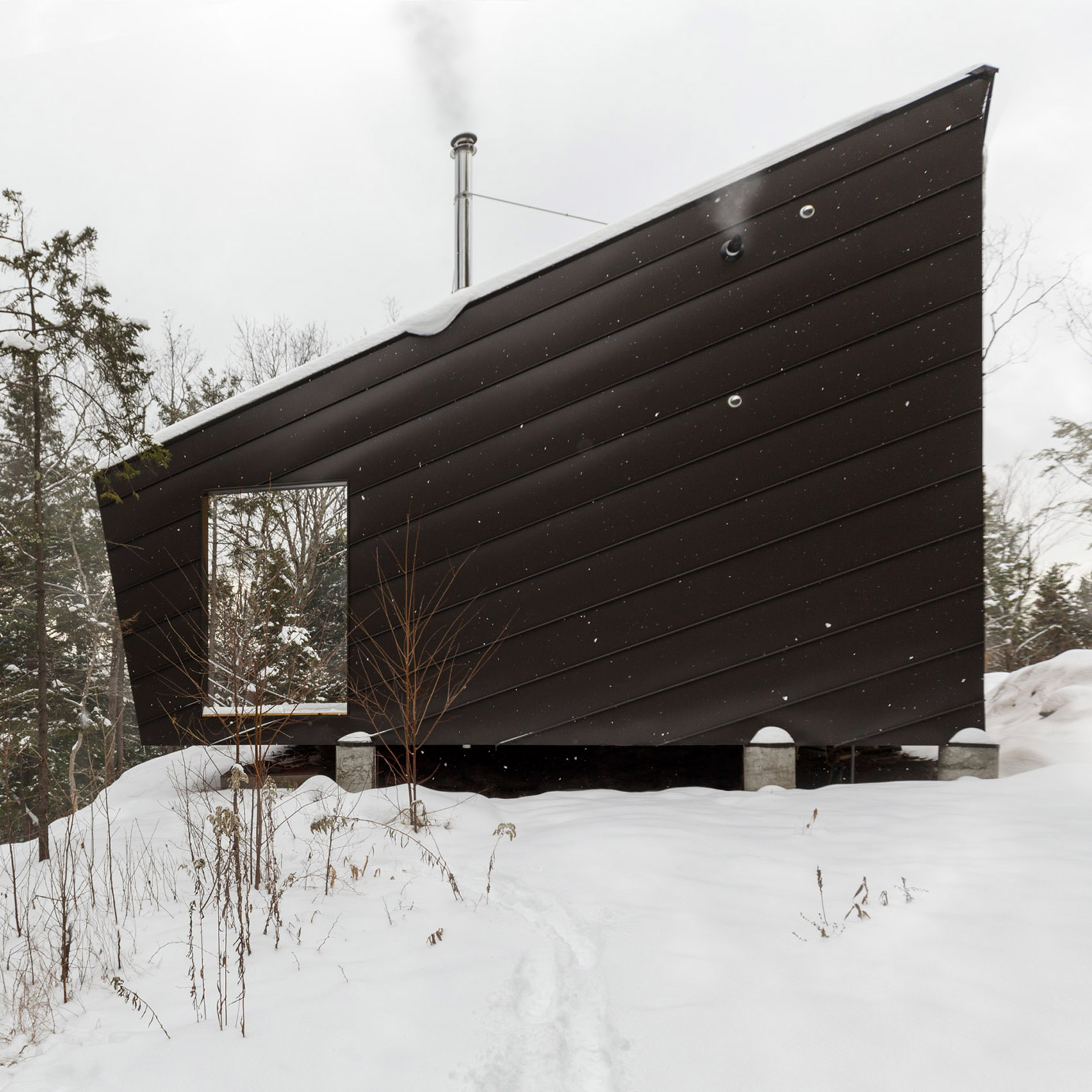
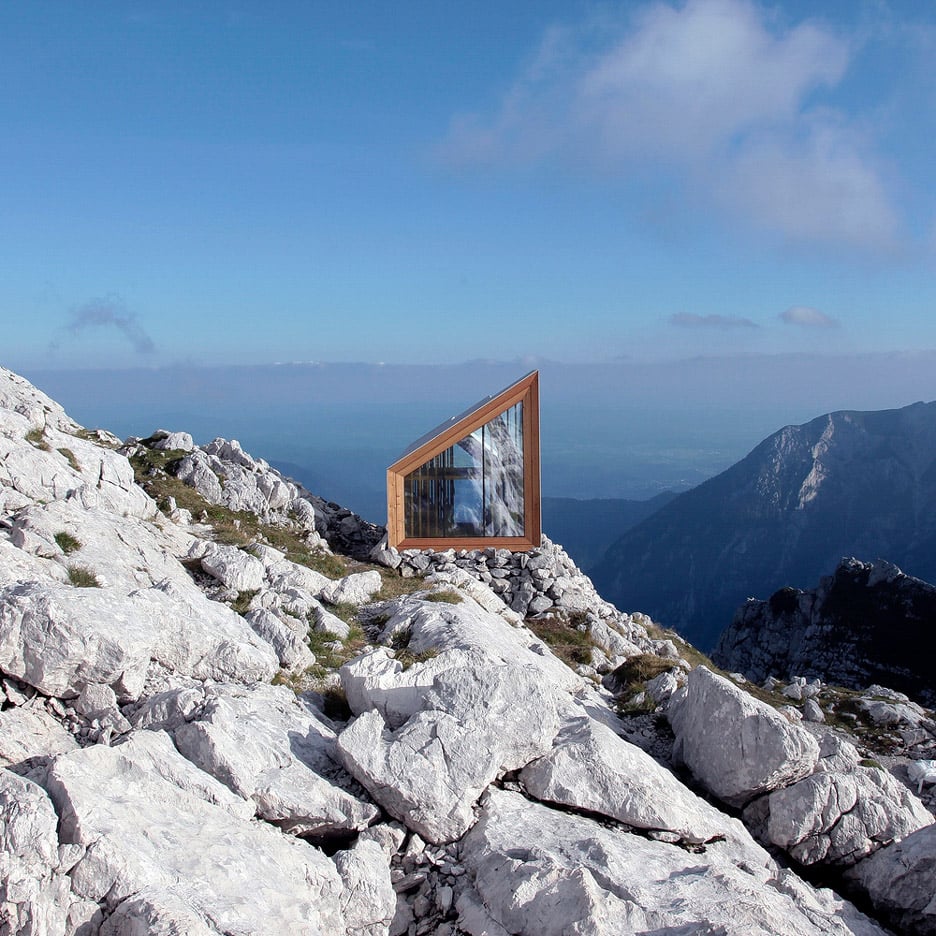
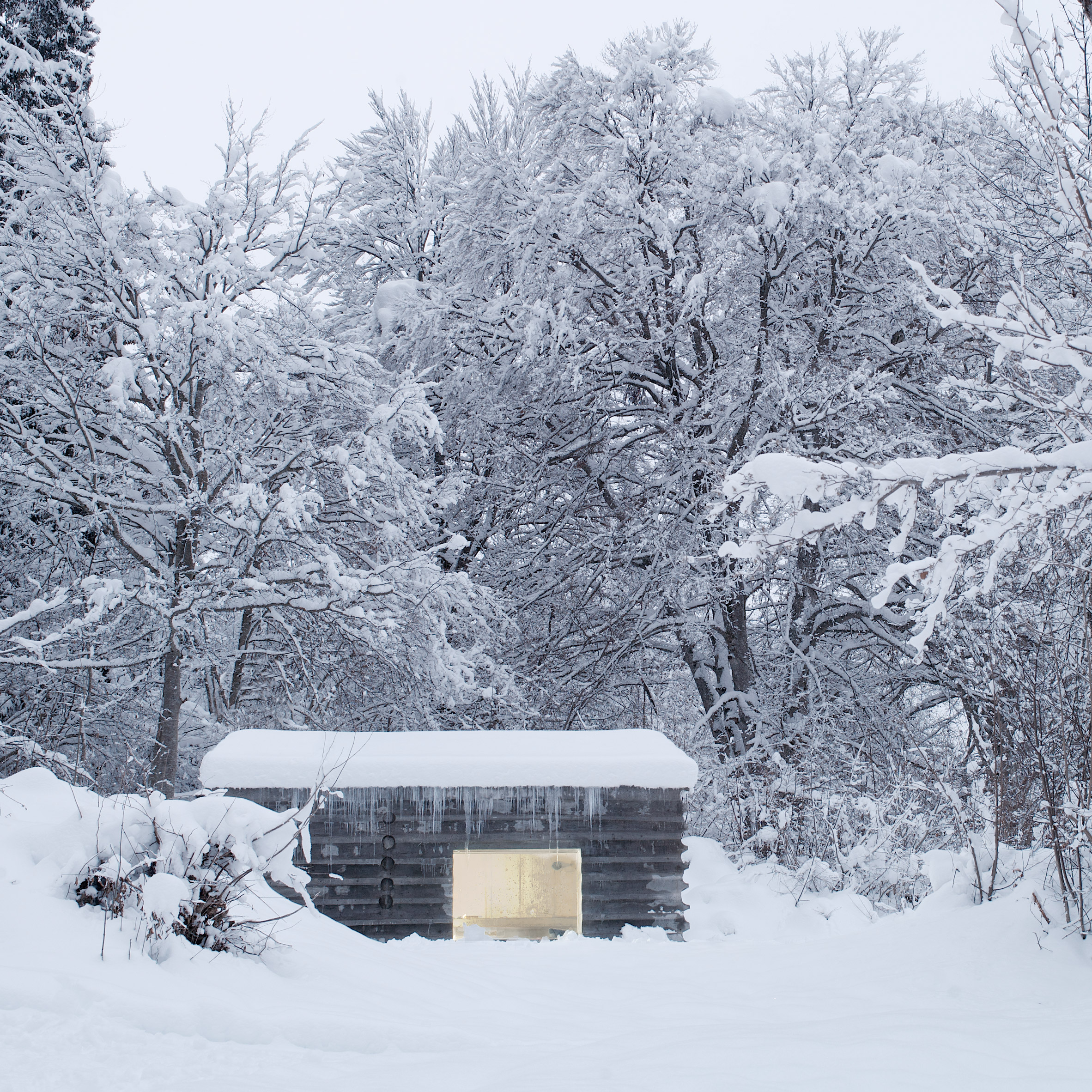
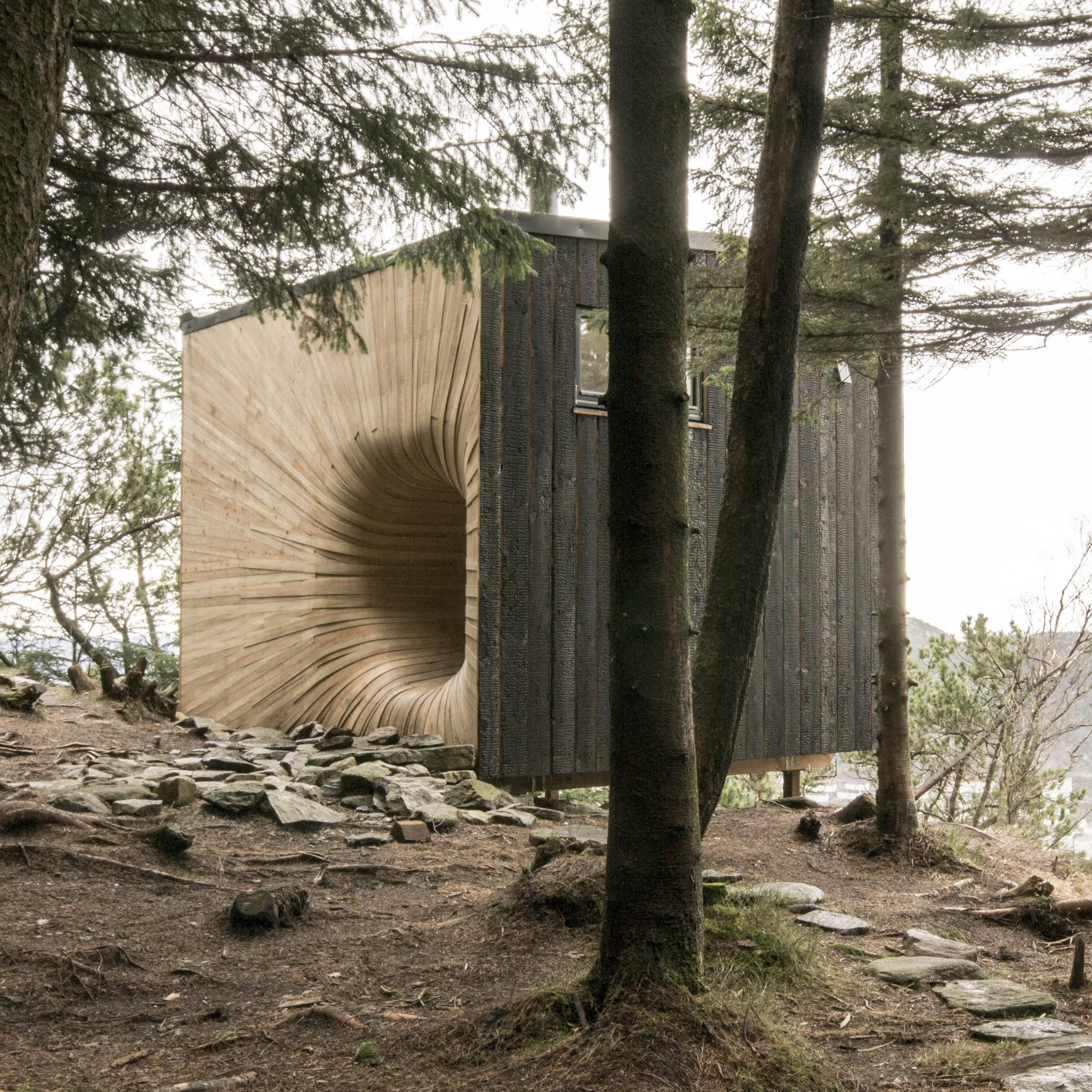
0 comments